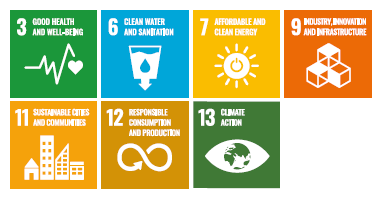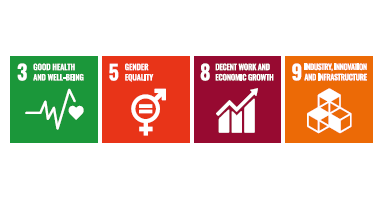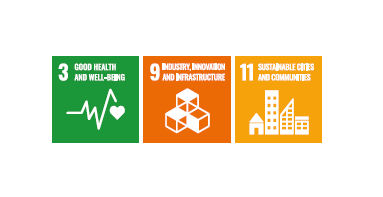Materiality
Reviewing and Identifying Key Issues (Materiality)
Mazda has worked to identify the social issues that the Mazda Group should address while reflecting the external opinions of experts and various other stakeholders and taking into account opinions from both management and the relevant divisions. In July 2016, Mazda identified and disclosed the key issues (materiality). In subsequent years, which saw growing worldwide interest in environmental, social, and governance (ESG) issues, expectations from stakeholders became more specific and the social environments surrounding the Mazda Group underwent some changes. Given these circumstances, in FY March 2018, the Company started to review materiality. In 2021, Mazda identified the social issues that the Mazda Group should resolve through its business and clarified and disclosed the relationship between these issues and the Sustainable Development Goals (SDGs) and targets adopted by the United Nations. Then, given the update to the Medium-Term Management Plan and Management Policy up to 2030, announced in November 2022, Mazda once again reviewed its materiality.
Materiality Review and Identification Process
In reviewing materiality, Mazda took into account two perspectives. One is the stakeholders' perspective in reference to the SDGs adopted by the United Nations and the details of surveys conducted by global ESG rating organizations. The other perspective is the importance to the Mazda Group, for instance, business initiatives toward realizing the Management Policy up to 2030.
Step 1 Extraction of social issues
To extract social issues from the stakeholders' perspective, Mazda analyzed and clarified what investors and the global society expect of the Company from the details of surveys conducted by global ESG rating organizations. As for the importance to the Mazda Group, its specific issues described in the Management Policy up to 2030, "Sustainable Zoom-Zoom 2030," and Securities Report were analyzed so as to select the social issues.
Step 2 Evaluation of the impact / prioritization of social issues
Mazda identified potential priority issues to be tackled by evaluating the social issues selected in Step 1 according to two axes: Impact on stakeholders*1 and impact on the Mazda Group.*2 The Company also clarified the themes to be addressed from a long-term viewpoint by correlating with the 169 targets of the SDGs.
Step 3 Validation
To validate the priorities of themes identified in Step 2, consultations were held with management, which approved the priorities.
Step 4 Disclosure of materiality
A specific action plan is currently being prepared to ensure steady implementation of the materiality themes identified in Steps 1-3 and follow up on the progress. The materiality that Mazda recently identified and an action plan that will be formulated henceforth will be disclosed to stakeholders. By periodically evaluating and revising this materiality and plan, Mazda will develop the PDCA (plan-do-check-act) process.
From now on, Mazda will carry out initiatives to address the eight themes of materiality that the Company has identified.
Initiatives to address the issues regarding "Earth"
Initiatives to address the issues regarding "People"
Initiatives to address the issues regarding "Society"
Common initiatives to address the issues regarding "Earth," "People," and "Society"
- *1 Expectations for the Mazda Group and the automotive industry
- *2 Risks and opportunities for the Mazda Group




